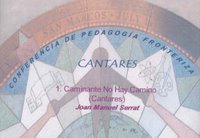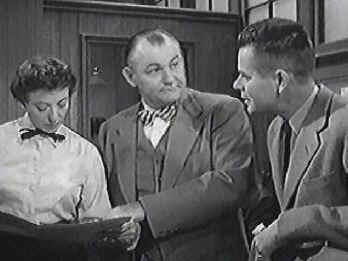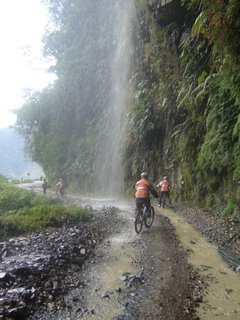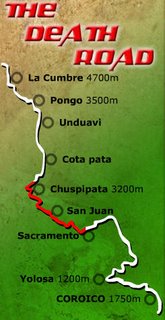 This is truly a pregnant site! Enjoy.
This is truly a pregnant site! Enjoy.
These are a few drops of desert dew to sustain aspiring teachers as they trek across the credentialing wilderness as well as veteran maestros who might be refreshed by these shared experiences... All are welcome!
Friday, December 30, 2005
Thursday, December 29, 2005
CYBER SCHOOLS
In any case, I wanted to comment on a new trend – not so new actually – Charter schools with a twist: Cyber Charter Schools! It is something to keep an eye on... Their charter normally read as follows:
Our students connect over the Internet to their classrooms, webcasts, and email using a school computer and Internet service. There are some activities that can be completed offline, but most student work is completed online. Most of the core subjects use traditional textbooks, augmented with supplemental materials online. Some textbooks are also available on CD. Classes typically have a posted syllabus with weekly due dates. In general, work can be completed any time of the day during the week. Students and parents can log into classes at any time to check progress and grades, and progress reports are mailed frequently. We use standardized tests to confirm placement for new students, and to gauge progress for the school year. While email is our primary communication tool, we contact students and parents regularly by telephone. Teachers all have office hours during which they are available by phone to answer questions and consult with families. We follow a traditional school calendar, which is flexible to accommodate student needs.
Check out the following links to get a flavor:
Wednesday, November 23, 2005
DEATH ROAD
In Bolivia - South America in the department of La Paz there is an awesome road that takes you from the heights of the Andes to the jungles of the “Yungas” The road is called “DEATH ROAD” or “El Camino de la Muerte” – no kidding.
The road is used by cyclists throughout the world to test their vim. The ultimate thrill ride!
Check this out – here is my niece’s team going from the heights of La Paz (~13,000 feet) to the jungle, all on a one lane road……… amazing!
Click the picture below for the story board:
Congratulations to the team!
Friday, November 18, 2005
OPPORTUNITIES!
You heard of Yahoo, Google, Skype, and others…?
You will be blown away if you check this out. The diagram is tongue-in-cheek but the implications are sobering!
This is really a word to the wise, isn't it?
Thursday, November 17, 2005
THE 100$ LAPTOP COMPUTER
Incredible advances in technology and the foresight of a visionary’s visionary: Nicholas Negroponte – the head of the MIT Media Lab, have brought about a new revolution. Keep an eye on this one – check out today’s Gizmodo:
What do you think?
There is something sad about this in some ways, many teachers do not use computer technology, no matter how accessible; in fact, they are afraid of this tool… if it is $100 or $10,000 it doesn’t make much difference to them. Unless a teacher finds value in the tool by himself or herself they will not use anything new. Their lack of vision hurts the students and themselves.
Those that will pick up the tools of the future are those that fulfill a key trait of highly effective teachers:
Openness to and enthusiasm for learning: can engage with a variety of educational ideas with an open mind and a sense of exploration; demonstrates passion for and metacognition of learning across the curriculum and within discipline areas; takes advantage of learning opportunities and seeks out additional opportunities for learning.
Here is a key links related to this topic:
Saturday, November 12, 2005
WHAT IS TEACHING?

What is teaching?
Is teaching the process of knowledge transfer between “master” and pupil?
We can first ask what is knowledge? Have you thought about it? How can you recognize it in yourself and in others? What does it mean to “know?”
The thesaurus diagram above helps a bit…look at the groupings for the word “know,” To know or to have knowledge of something means that you, 1) can recall/recollect/retrieve information, 2) understand, 3) are experienced, 4) are able to discern and differentiate, 5) are able to recognize and be aware. So if our students really know something – they are truly empowered!
But how do they “get it”? How do they get this “know”?
The pedagogical term cognition can help shed some light into this knowledge business. Cognition means to come to know (from the Latin cognoscere) You will notice how close the word is to “conocer” in Spanish which means: to know. So cognition is the outcome – it is the result of perception, and learning, and reasoning.
Well, is a teacher’s job then to pass on his or her knowledge to the student? This would be something akin to pouring facts and figures into a student’s head. Sure sounds like it would be easy but very boring! But is that how students learn to “know?”
Another term that might help shed light is metacognition. The prefix “meta” just means: about, higher or beyond. This is really the key for teachers.
Metacognition is the in-built skill of an explicit and conscious learning self-awareness; how one processes input through our senses, how one processes the information, how one makes connections with one’s own prior knowledge, how one gains and stores new insights, how one recognizes noise or deficiencies in one’s understanding and how one applies techniques to correct them. Doty, et. al. in Teaching Reading in Social Studies for example say, “Effective readers who have learned metacognitive skills can plan and monitor their comprehension, adapting and modifying their reading accordingly. Struggling readers need to be taught how to monitor their thinking as they read and how to select appropriate strategies to help them when needed.”
So what is a teacher supposed to do - really? If metacognition is student’s internal process of a learning self-awareness what is the teacher’s role? To enable the process of course!
I love the succinct teaching of Dr. Howard Hendricks, he says, “the way people learn determines how you teach” Wow – how simple and direct.
He says,
Teach students how to think
Teach people how to learn
Teach people how to work
The teacher must be a motivator; and the learner is primarily an investigator, a discoverer, and a doer. Teach to THINK, LEARN & WORK by helping students master:
Reading
Writing
Listening
Speaking
What is your take?
Thursday, November 10, 2005
SE HACE CAMINOS AL ANDAR
Where does the saying come from? I am sure most Hispanics know but I admit that I did not. So I did a bit of research and found that was written by Antonio Machado (1875-1939). Machado is the accomplished Spanish poet a close friend of Ruben Dario who wrote:
Cantares...
Todo pasa y todo queda,
Nunca persequí la gloria,
Me gusta verlos pintarse
Nunca perseguí la gloria.
Caminante, son tus huellas
Al andar se hace camino
Caminante no hay camino
Hace algún tiempo en ese lugar
Golpe a golpe, verso a verso...
Murió el poeta lejos del hogar.
Golpe a golpe, verso a verso...
Cuando el jilguero no puede cantar.
Golpe a golpe, verso a verso.

Wednesday, November 09, 2005
THINK
“Back when some of us were concerned about why Johnny can’t write,” Professor McRostie told me, “a psychologists put it to us that Johnny can’t reason, and I’ve been preoccupied with that thought ever since. The first two books I assigned last term were, the Art of Thinking, by Vincent Ruggiero, and Reasoning, by Michael Scriven. This is the generation that has spent fifteen thousand hours watching television, and its attention span is short. I’m challenging my students to find their powers of reasoning.”
I mentioned to my peers that we no longer seem to have time to really think things through… we are all so busy just tasking like the proverbial squirrel. It made me think that it is a societal issue, isn’t? The magazine Darwin (darwinmagazine.com) has an article titled: “The Value of Thinking” with a subtitle: Ideas are not in short supply. But thinking them through is not valued enough. They recommend that managers should encourage their people to:
- Talk about the need to think
- Invite people to think
- Learn from thinking

Well it was brought over from a company called National Cash Register (NCR) back in 1914 to a new company called Computer-Tabulating-Recording-Company by Thomas J. Watson. That company was the forerunner of today’s IBM.
Do you think it is an accident that they named their laptop computers: IBM Think Pad?
And now you know the rest of the story….
Friday, November 04, 2005
HISTORY IN THE MAKING
Take for example Rosa Parks – one of the icons of the Civil Rights movement. She passed away this past month – and the country mourned her. Will new generations know and remember her? I hope so. It is up to us history teachers to keep her contributions vibrant and in perspective – we should make sure Americans never forget. May she rest in peace – heaven and earth are richer places because of her.
On a lighter note… I occasionally come across some great discoveries – of all places at garage sales! (Honestly – I hate shopping, but I break for used books and old items of interest). In any case, I picked up a box full of old “78” records a while back for I think a few dollars. Well I did not know I hit the jackpot! I have literally over 100 old records some dating all the way back to the early 1900s! And the music? – all kinds, from country to jazz, to blues, to classical. And the labels? – you name it: Odeon, Capitol, Okeh. Decca, Victor, etc. How about the artists? – Bing Crosby, Gene Autry, “Fats” Waller (Jazz), even Caruso – yes THE Caruso. Here is one example:

This is a first recording of Gene Autry’s signature song: “Back in the Saddle Again” I would have never thought I would own it! Pretty cool – huh? Then you start thinking about it – this would make a great lesson for the kids… This recording dates back to 1939 – just before World War II. A technique to trace history is to look at the life of one individual, so why not Gene Autry? You can learn a lot! Who was Gene Autry prior to 1939? What did he do after 1939? What was Texas, Oklahoma and California like when he lived there? How did it change during WWII? What did Gene Autry contribute to the war effort? You can even introduce some fun stuff like - can you trace “Back in the Saddle Again” in a new movie? (Sleepless in Seattle) Why was this particular record selected – was it important, why?
Great possibilities you have to admit – you can also engage the kids in the history of technology 10” 78 RPMs vs today’s CDs and podcasting. You can even create a project to “clean” up the sound of a 78 – and digitize it to a CD as a way of preserving history. Well – ? Yeah, it would work. Of course you would need one of these…

And yes – this record player has four speeds: 16, 33, 45, 78 RPMs– I bet most of you have never heard of a 16 rpm record?
Tuesday, November 01, 2005
CALQUE
Calque sounds like the Spanish word “calcar” – which means to trace over, to delineate or copy something. Anyway, here are some calques – enjoy!
Blue Blood from the Spanish: Sangre Azul
Potpourri form the Spanish: Olla Podrida (Rotten Pot)
Chop chop from the Chinese: Quick Quick
Flea market from French: marché aux puces
Can you think of others?
Sunday, October 30, 2005
TESTING IN 1895
- Give the epochs into which U.S. History is divided.
- Give an account of the discovery of America by Columbus.
- Relate the causes and results of the Revolutionary War.
- Show the territorial growth of the United States.
- Tell what you can of the history of Kansas.
- Describe three of the most prominent battles of the Rebellion.
- Who were the following: Morse, Whitney, Fulton, Bell, Lincoln, Penn, and Howe?
- Name events connected with the following dates: 1607, 1620, 1800, 1849, and 1865?
What do you think if you had to take such a test? How would you do? If you have or are teaching kids, how would they do - no matter what grade they are in?
Check out the test on other subjects at Grandfather Education Report.
Saturday, October 29, 2005
INTO – HISTORY
How about using this as an “into” for presenting and introducing the interpretation of historical primary sources? The need to be careful how to interpret evidence… What do you think – or better yet, what do you see? Pink balls?
Check the link and really find out:

ENGLISH LANGUAGE LEARNERS

If I understand this correctly, classes such as the one I was observing next year will be history (no pun intended). The emphasis will be English immersion. Good or Bad? Depends who you ask – it is a red-hot debate, it is sacred ground – it is a solipsistic issue with two disputing bands of professionals as its core – each with their own special pedagogical and political interests at heart.
In 1998 California passed Proposition 227 which did away with bilingual education. It is now 2005 – so what does this mean to teachers; to me? It means we have to be much more cognitive of what English Language Learners (ELL) students truly require – in theory and practice. We must be much more pro-active and sensitive to assess literacy levels and work to scaffold the students to be successful in the classes we teach all the while insuring that not only ELL students progress but that all students have the same support to excel in school. A challenge – you bet! Doable? No doubt.
Saturday, October 22, 2005
If these facilities are available for knowledge workers – what about for classrooms designed to serve teachers and students where they need flexible configurations, group work and an attractive ambiance. Dreaming?
Well actually I was not disappointed to find out that there is such an animal! At least it exists – which I find encouraging….. don't you? Here are some pictures and a link in case you are interested.



Check it out at:
Now how do we get these into our classrooms?Sunday, October 16, 2005
FOUND POEM
The one listed in Wikippedia as many people attributed the speeches of Donal Rumsfeld as found poetry - this is worth noting: :)
The Unknown
As we know,
There are known knowns.
There are things we know we know.
We also know
There are known unknowns.
That is to say
We know there are some things
We do not know.
But there are also unknown unknowns,
The ones we don't know
We don't know.
Donald Rumsfeld, Feb. 12, 2002, Department of Defense news briefing
LEARNING STRATEGIES DATABASE
As we struggle in our literacy class to understand the complexities of teaching literacy in addition to learning the taste of a new alphabet soup: QAR, SQ3R, SQ4R, SQRQCQ, CARI, etc. it is nice to stumble on a rich discovery.
Muskingum University has a web site called “Center for Advanced Learning” that has a Learning Strategies Database. Precious!
The data base gives a comprehensive list of strategies for students, parents, teachers, and High School counselors covering a multitude of topics with absolutely great and detailed stragegies that can be followed. For example, note taking, information organization, reading and memory strategies, test preparation and test taking strategies, very impressive. Click on the image below to explore:

This link came from another great web site called: Literacy Matters - looks like another gold mine to explore!
Thursday, October 13, 2005
PLAYING WITH WORDS
 I was referring to have her check some links in relation to our project. Well – you know about words – she responded with:
I was referring to have her check some links in relation to our project. Well – you know about words – she responded with:
 Her response tickled me and I realized that she probably was not too familiar with the term: “Take a gander.” But her response was funny – typically British! In any case I sent her this link which helped enlighten us both:
Her response tickled me and I realized that she probably was not too familiar with the term: “Take a gander.” But her response was funny – typically British! In any case I sent her this link which helped enlighten us both:
Her response after checking it out, was:
 Curious? Check it out - go on, take a gander!
Curious? Check it out - go on, take a gander!
Wednesday, October 05, 2005
GEODESIC DOME - MATH IN ACTION!



Multiple intelligences in action! Look at these bright students as they assemble a paper geodesic dome - and learn: history, geometry, math, architecture, material strength, structural strength etc. Great practical examples for our future engineers, historians, and doctors! Courtesy of Lewisville High School. This is an example of great teaching!
Monday, September 26, 2005
TEACHERS AS TARGETS
The poem is by Sigmund A. Boloz and is called "Be Dangerous" ; near the end it reads:
BORDER PEDAGOCY - PEDAGOGIA FRONTERIZA
We were priviledged to attend the "Crossing Borders: Education for a New World", in Spanish, "Cruzando Fronteras: Educación para un mundo nuevo" on Saturday September 24th. It was a great experience to meet the teachers from Tijuana and San Diego under one roof. The event was punctuated with a great mexican breakfas, and a nice lunch - including "flan!" for those of us with a sweet tooth - and of course music!
The brass was in town that morning - got to see the president of the University Karen Haynes along with the head of the College of Education Mark Baldwin plus all the key figures of the COE that are involved in languages, Juan, Zee, John, Maria de la luz, Elizabeth, and others.
These are a few of the pictures:
Check out some more pictures posted at FLICKR:
http://www.flickr.com/photos/37257426@N00/
If you have any questions please drop me a note...
TECHNOLOGY
Check it out:
Things you will learn: Digital Imaging with Ease - curriculum integration, Virtual Gaming, Podcasting 101, Wikis for Wackos: Cross-curriculum & Differentiated instruction...and much much more...
Monday, September 19, 2005
BILINGUAL - EDUCATION - MULTICULTURALISM

Thursday, September 08, 2005
WHY?
In any case, there is a great write up at Star Tribune by Katherin Kersten - check it out. She concludes with:
"If you want to influence our nation for the good, the most important thing you can do is become a high school teacher."
Wednesday, September 07, 2005
FOLKSONOMY
 Well, there is another iteration that is even more powerfull called: del.icio.us this tool actually allows you to bookmark any page without any hassles and it allows you to extend the name and add tags! This very cool feature is called Folksonomy - similar to taxonomy. Pay attention you English majors lest your students zip right by you! The Wikipedia defines folksonomy as: a neologism for a practice of collaborative categorization using freely chosen keywords.
Well, there is another iteration that is even more powerfull called: del.icio.us this tool actually allows you to bookmark any page without any hassles and it allows you to extend the name and add tags! This very cool feature is called Folksonomy - similar to taxonomy. Pay attention you English majors lest your students zip right by you! The Wikipedia defines folksonomy as: a neologism for a practice of collaborative categorization using freely chosen keywords.
Got that? It is a community way or organizing links! It means that the group has already vetted and categorized much more information that you alone could ever do! Egalitarianism at its best!
Here is the link if you dare:
Monday, September 05, 2005
¿TOMAS CAFÉ, NO?
…I don’t remember ever encountering a grammatical construction such as, “Your imagination should be able to handle that, no?”
Why not end with “yes”? And what response indicates agreement or disagreement when ending the query in “yes” or “no”?
WFB answers:
….Very interesting, As in other matters in language, doing what comes naturally tends to be the thing to do. The negative is obviously called for in French (“Tu désires du café, non?”) and Spanish (“¿Tomas café, no?). If one were to expand the negative locution here, we’d have “You’re going to have coffee, aren’t you?” And there is the negative, poking its head. Aren’t you? – Are you not? The sentence you quote is constructed to suggest that the addressee’s imagination is (presumably) sufficient to cope with the problem; so that the indicated answer – if the imagination were insufficient – would be: No. A “yes” could be accomplished by a nod of the head, or – silence…
Wow – talk about brilliance in handling the language!
Check out NRO at:

BLACK BOARD JUNGLE
Monday went to class to find out that the class was not being held that day! Oy Bey! Three of us stood in class looking at each other wondering – ok… where is the rest of the class? Lack of communication was the explanation – oh well. Class does not start until September 12th.
Tuesday was a-ok but boy you better keep up with the multitude of assignment/locations/explanations/suggestions in a conundrum of icons on the web… take out a wet suit and your scuba gear!
Wednesday – the syllabus said that class was held last week already! So some of us ended up going in as if we had missed a class already! It was a relief to find out it was a professor error! Now this class is very interesting – found another Bolivian in the class!! LOL J
Thursday – another miscommunication – could not find the classroom – we finally figured it out!
I tell you, the COE is a constant basic training boot camp. It makes you wonder if this is all part of teacher training… is this preparing us to face the blackboard jungle? Remember that movie? "The Blackboard Jungle" or am I dating myself because most kids would not know what a blackboard is... anyway, risking dating myself; the movie was about an idealistic teacher on his first job!!!!!! Honestly, check it out:



























